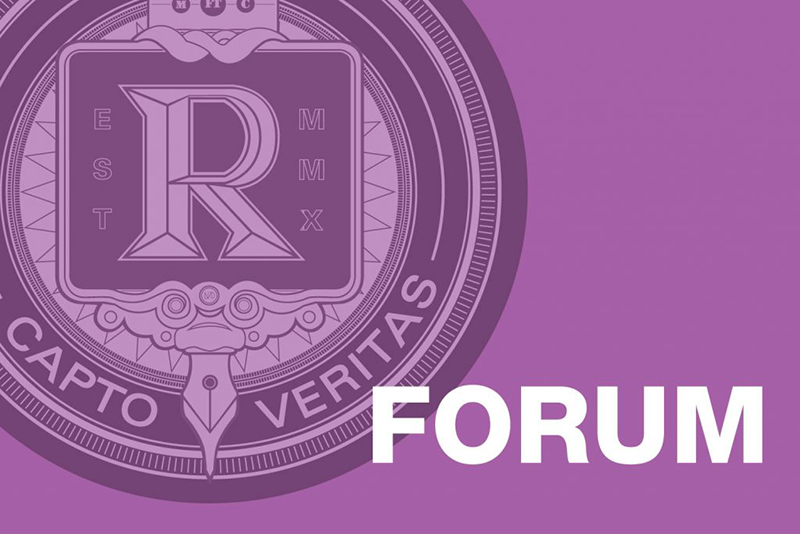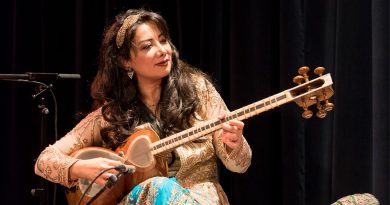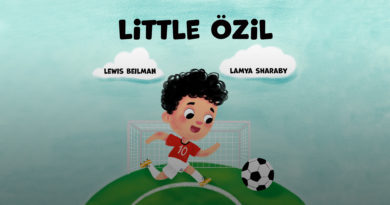A Month Of Devotion And Fasting For The Ramadan Fast Connects Muslims To Faith
My alarm goes off around 4:55 a.m. and I know exactly what time it is.
Although my body begs for more sleep, I force myself to get up and make my way into the bathroom to begin my ablution.
I wash my hands, arms, nose and mouth, my head and feet.
Then, I go to my prayer rug and make Fajr, or early morning prayer.
Afterward, I feel more awake.
I feel a certain kind of peace that only the early morning prayer can give me.
Like Muslims all around the world, I strive to make the morning prayer, as it is one of the five obligatory prayers in the religion of Islam.
However, after I pray on this particular morning, I head into the kitchen and drink some water, perhaps even have a little fruit before the first bit of sunlight creeps into the horizon.
I may not feel thirsty, but I know that it’s important to have some kind of fluid in my body since I can’t drink during the daylight hours.
This is my routine during Ramadan, the ninth month of the Muslim calendar in which Muslims believe the Qur’an was revealed to the prophet Muhammad.
A daily fast is rigidly enjoined from dawn until sunset.
The word itself literally translates into “intense heat,” as it takes place during the hottest month of the year.
Those who participate in this 30 day fast abstain from drinking any liquids and eating any foods from sun up to sun down, and also read the holy Qur’an from the first surah (chapter) to the last. The fast helps participants experience what it’s like for those who are less fortunate.
Since the fast takes place during the hottest month of the year, it’s definitely hard to complete, especially for those who are participating for the first time. When engaged in the Ramadan fast, I make sure to be careful not to push myself too hard. If I feel myself getting very dizzy or about to pass out, I make sure to drink some water if I need to. I strive to complete the fast, but it can take some time for my body to get used to it.
After a long day of fasting, I come home exhausted, hungry and thirsty. While I wait for the sun to go down, I get ready to perform Maghrib, or sunset prayer. Afterwards, I feel much more relaxed, and ready to consume a meal.
During the day, I often fantasize about the different foods I would stuff myself with once I’m able to break my fast.
However, often I realize that once I eat a little bit of food, I am no longer hungry.
This is one of the benefits of Ramadan.
The fasting actually helps to control my appetite, which can lead to weight loss.
An article in Yahoo! Lifestyle reported a team of cardiologists in the United Arab Emirates found that people observing Ramadan enjoy a positive effect on their lipid profile, which means there is a reduction of cholesterol in the blood. Low cholesterol increases cardiovascular health, greatly reducing the risk of suffering from heart disease, a heart attack, or a stroke.
Some children abstain from candy.
Even though it’s hard, there are great benefits.
People who participate in the fast experience their own benefits during Ramadan.
“A benefit I’ve experienced is the feeling of oneness with Allah (God),” DeeAngela Muhammad, a mentor at my mosque told me. “I’ve also experienced an increased level of discipline that carries throughout the year and more focus. Also, unity with the larger and local Muslim community.”
It is a deliberate time.
One purpose of Ramadan is to help us to get rid of bad habits and make new, good ones. So, through the discipline of abstaining from food and water, I am better able to demonstrate discipline in other aspects of my life.
I feel a connection to Muslims all around the world who are also striving to complete the fast.




